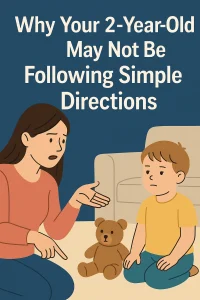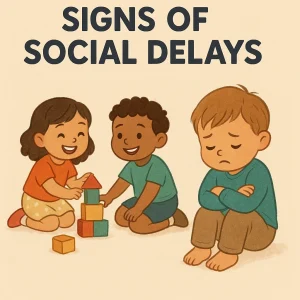The Role of Autism Screening Tests in Early Childhood Intervention
Last Updated: September 25, 2024
Early autism screening is one of the most powerful tools available to parents and caregivers. When signs of Autism Spectrum Disorder (ASD) are identified early, it opens the door to timely interventions that can make a significant difference in a child’s development. By understanding how a child grows, communicates, and interacts, early screening helps ensure that any developmental concerns are addressed promptly.
The earlier ASD is detected, the sooner tailored therapies and support can begin—often between 18 and 24 months. This critical window is when children’s brains are rapidly developing, making early intervention essential for improving social, communication, and behavioral outcomes.
Discover your child’s developmental needs with our Autism Screening Tests—click here to start now!
What Are Autism Screening Tests?
Autism screening tests are tools designed to identify early signs of developmental delays, particularly in areas related to social interaction, communication, and behavior. These tests help parents and caregivers understand how a child’s skills are progressing compared to typical developmental milestones. Early detection is essential because it allows intervention to start as soon as possible, giving children the best chance to develop the skills they need.
These screenings are often simple questionnaires or checklists filled out by parents, caregivers, or healthcare providers. They assess how a child interacts, communicates, and plays, offering valuable insights into areas where they may need extra support. While screening tests do not provide a formal diagnosis, they help determine whether a child should undergo further evaluation.
Autism screening tests are particularly helpful for identifying issues at an early stage, sometimes even before symptoms are noticeable to parents. This allows for timely intervention and better outcomes as the child grows. If you’re a parent or caregiver, you might wonder how these screening tests fit into your child’s development journey. These tools offer clarity, giving insights into your child’s strengths and areas needing attention.
When Should Autism Screening Be Done?
Autism screening is typically recommended at key developmental stages to ensure early identification and intervention. The American Academy of Pediatrics suggests screening for autism at 18 and 24 months during routine well-child checkups. These checkups allow healthcare providers to monitor your child’s developmental progress and spot any signs of developmental delays early on.
But when exactly should a child be screened for autism? Screening usually occurs around 18 months because this is when children start reaching critical milestones related to communication, social interaction, and behavior. A second screening at 24 months ensures that any emerging signs of autism are noticed as the child continues to grow. If any concerns arise during these visits, a more in-depth evaluation may be suggested.
In addition to scheduled checkups, parents and caregivers play a crucial role in initiating autism screening. If you notice your child not meeting expected milestones—such as delayed speech, lack of eye contact, or repetitive behaviors—it’s essential to bring these concerns to your healthcare provider. Early detection, even outside routine checkups, can be the key to unlocking timely early childhood intervention, which greatly improves outcomes for children with autism.
How Do Autism Screening Tests Work?
How Do Autism Screening Tests Work?
Autism screening tests evaluate developmental milestones and behaviors in young children to identify potential signs of autism. These tests involve a combination of parental observations and direct assessments by professionals. Key areas examined include social interaction, communication skills, and repetitive behaviors. Wellness Hub’s free autism checklist provides a simple way for parents to start this process by answering questions tailored to their child’s age and behavior. Early detection using this tool allows parents to seek timely interventions, which can greatly improve outcomes.
These screenings help detect developmental delays early on, allowing interventions to begin as soon as possible. Most screenings are simple questionnaires that help you and your healthcare provider assess whether further evaluations might be necessary.
Common Autism Screening Tools
Autism screening tools are essential for detecting developmental delays and autism at an early stage. Both healthcare professionals and caregivers can use these tools to monitor a child’s progress, providing valuable insights for early intervention.
- Autism Screening Tests (BEAS) :
The BASICS Early Autism Screener (BEAS) is a comprehensive tool available at Wellness Hub. BEAS is designed to assess the social, communication, and behavioral development of children, helping parents identify potential signs of autism early on. This assessment allows for timely intervention, which is crucial in managing autism spectrum disorders effectively. - Ages and Stages Questionnaires (ASQ):
The ASQ is widely used for assessing a child’s development in areas like communication, motor skills, problem-solving, and social interactions. It is a parent-friendly tool, taking about 10–15 minutes to complete. By understanding key milestones, caregivers can determine if additional evaluations are necessary. - Screening Tool for Autism in Toddlers (STAT)
The STAT is specifically designed for children aged 24 to 36 months. This interactive, play-based test involves 12 activities that help professionals observe a child’s communication, imitation, and play behaviors. It’s an effective tool for early autism detection in toddlers. - Social Communication Questionnaire (SCQ):
For children aged 4 years and older, the SCQ offers a quick 40-question screening, focusing on a child’s social communication abilities. This yes-or-no format helps parents identify if a child requires further developmental evaluations.
By using these screening tools, parents and caregivers can take the first step toward understanding their child’s developmental progress and seeking professional support if needed.
Comparison of Common Autism Screening Tools
| Screening Tool | Age Range | Purpose | Time to Complete | Description/Detail |
|---|---|---|---|---|
| Autism Screening Tests (BEAS) | 0-3 years/3-6 years | Early detection of autism and developmental delays | 10-15 minutes | Comprehensive screening assessing social, communication, and behavioral development. |
| Ages and Stages Questionnaires (ASQ) | 1 month to 66 months | Assesses overall development, including communication, motor skills, and social interactions. | 10-15 minutes | A parent-completed tool that monitors developmental progress through questionnaires. It covers key areas of development, making it easy to spot delays early. |
| Modified Checklist for Autism in Toddlers (M-CHAT) | 16 to 30 months | Identifies early signs of autism in toddlers by assessing behaviors and social communication. | 5 minutes | A widely used screening tool that helps detect autism early. M-CHAT is filled out by parents and focuses on behavior patterns related to autism, prompting further evaluation if needed. |
| Social Communication Questionnaire (SCQ) | 4 years and older | Assesses social communication skills and identifies potential signs of autism. | 10 minutes | Consists of 40 yes/no questions, making it simple for parents to complete. It helps assess communication skills and social interaction to identify potential developmental delays. |
| Screening Tool for Autism in Toddlers (STAT) | 24 to 36 months | Play-based evaluation of a child’s social, communicative, and behavioral development. | 20 minutes | Involves 12 interactive activities that evaluate the child’s ability to engage, imitate, and communicate through play. Typically administered by a professional in a structured setting. |
Benefits of Early Childhood Intervention through Screening
Early autism screening plays a crucial role in identifying developmental challenges at a time when intervention can have the greatest impact. By catching signs of autism early, screening helps families initiate therapies that support essential skills like communication, social interaction, and behavior management. During the first few years of life, children’s brains are most adaptable, making it an ideal time to start building foundational skills that can positively shape their future development.
Early autism assessment allows for timely intervention during these critical stages, when the brain is still forming crucial connections. The earlier a child receives the right support, the better their chances of developing key skills needed for long-term success. Whether it’s speech therapy, behavioral interventions, or social skills training, early intervention can improve a child’s ability to engage with the world around them.
With early intervention, therapies can help your child build the necessary skills for better communication and social interaction. This not only improves daily life but also sets them up for continued growth and learning as they get older.
What Happens After a Screening Test?
If an autism screening suggests developmental delays, the next step is often a more detailed evaluation to better understand your child’s specific needs. This evaluation may involve professionals like pediatricians, developmental specialists, or psychologists, who will take a deeper look into your child’s behavior, communication, and social skills.
What happens if an autism screening shows developmental delays?
Typically, the screening serves as an indicator, not a diagnosis. When delays are detected, professionals may recommend a full autism assessment. This assessment provides a clearer picture and can confirm whether your child is on the autism spectrum. Early screening is just the first step in a process that helps you get the support your child needs.
Once autism is detected, early intervention services can begin. These therapies, such as speech therapy, occupational therapy, or behavioral interventions, are crucial for helping children develop essential skills. The earlier these interventions start, the more effective they are in helping children improve their communication and social abilities.
Tips for Parents Navigating the Autism Screening Process
Navigating the autism screening process can feel overwhelming at first, but it’s important to remember that screening is just the beginning of your child’s journey toward getting the support they need. As a parent or caregiver, you are not alone in this process. Screening is the first step to better understanding your child’s unique needs and ensuring they receive the right care early on.
How can autism screening tests lead to better outcomes?
When developmental delays are identified through screening, it opens the door to early intervention, which has been shown to significantly improve a child’s communication, social skills, and overall development. The earlier you identify any concerns, the quicker you can start therapies that can make a lasting impact on your child’s life.
Conclusion
Early autism screening is an essential first step in getting your child the right support as soon as possible. Detecting autism early allows for timely interventions that can make a big difference in your child’s development. Screening is not a diagnosis but a way to understand your child’s unique needs and start their journey toward growth with the right help. The earlier the intervention, the better the outcomes for your child’s communication, social, and behavioral skills.
At Wellness Hub, we know how important early detection is for every child’s future. We’re here to guide you through the process, from the initial screening to finding the right professional support. With the right approach, your child can develop the skills they need to thrive. Our goal is to help families ensure their children receive the best possible care and opportunities for success.
Frequently Asked Questions:
1. What is an autism screening test?
An autism screening test is a tool used to detect early signs of developmental delays, particularly in areas like communication, social interaction, and behavior. These tests help identify children who may benefit from further evaluation and early intervention.
2. When should my child be screened for autism?
Autism screening is recommended at 18 and 24 months during routine well-child visits. However, if you notice developmental delays or concerns, it’s a good idea to talk to your pediatrician about screening earlier.
3. How do autism screening tests work?
Autism screening tests usually involve a series of simple questions about your child’s behavior, communication, and social skills. These can be answered by parents, caregivers, or healthcare professionals to identify any areas of concern.
4. What happens if my child’s autism screening shows developmental delays?
If a screening indicates possible developmental delays, your healthcare provider may recommend further evaluations by specialists. Early intervention services can then be provided to support your child’s development.
5. Why is early autism screening important?
Early screening allows for early detection of developmental issues, which is crucial for starting timely interventions. The earlier a child receives support, the better their long-term developmental outcomes can be.
6. Can autism screening tests improve outcomes for my child?
Yes, early autism screening can lead to better outcomes by allowing interventions to begin during critical developmental stages. Early support can help improve communication, social, and behavioral skills.
7. What are the most common autism screening tools?
Some commonly used screening tools include the Autism Screening Tests (BEAS), Ages and Stages Questionnaires (ASQ), the Modified Checklist for Autism in Toddlers (M-CHAT), and the Social Communication Questionnaire (SCQ). These tools help identify early signs of autism.
8. Is autism screening a formal diagnosis?
No, an autism screening is not a diagnosis. It’s the first step to identify whether a child may need further evaluation. A formal diagnosis is made through more in-depth assessments by specialists.
9. What are the benefits of early intervention for autism?
Early intervention helps children develop essential communication and social skills. It can significantly improve their ability to interact with others, manage behavior, and succeed in everyday activities.
10. How can Wellness Hub help after an autism screening?
At Wellness Hub, we guide parents through the next steps after an initial screening. We connect families with the right professional support and early intervention services to help their children succeed.
About the Author:
Anuradha Karanam
Speech-language pathologist (7+ years of experience)
Anuradha Karanam is a skilled speech-language pathologist with over 6 years of experience. Fluent in Tamil, Telugu, Hindi, and English, she specializes in parent counseling, speech sound disorders, fluency assessment, and speech-language evaluations. Anuradha excels at working with children with developmental disorders, offering creative and effective therapy programs. Currently, at Wellness Hub, she holds a BASLP degree and is registered with the RCI (CRR No A85500). Her patience, ambition, and dedication make her a trusted expert in her field.
Book your Free Consultation Today
Parent/Caregiver Info:
Client’s Details:
* Error Message









